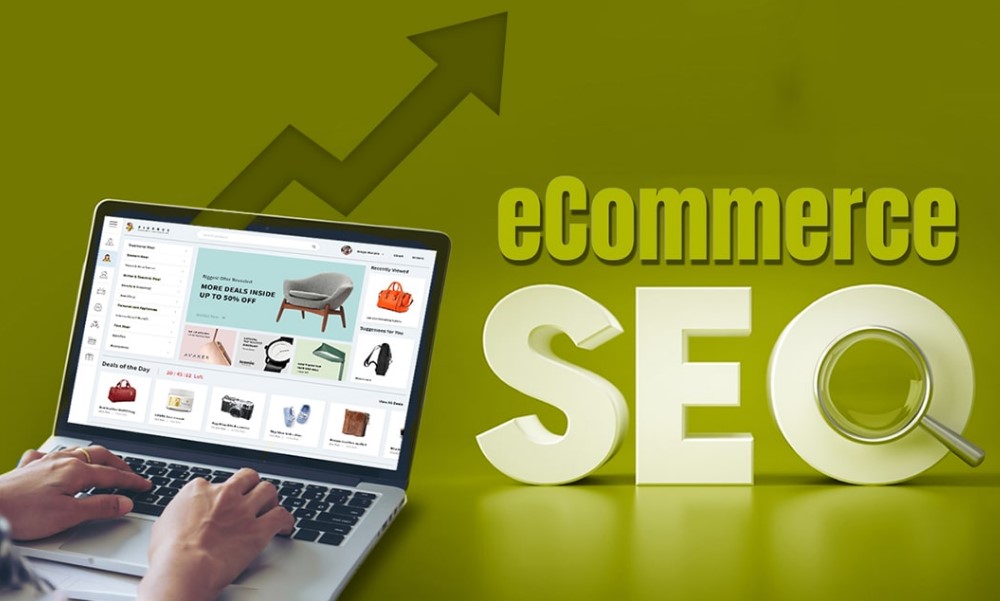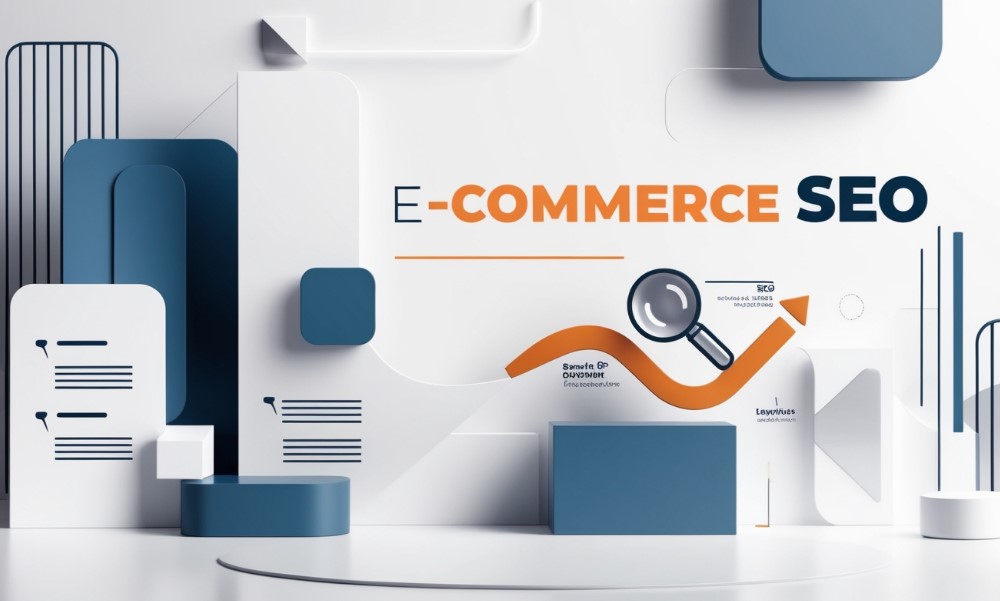Effective SEO Strategies for Growing Online Stores | Boost Sales & Visibility
In today’s digital marketplace, SEO for online stores is crucial to enhance brand visibility and drive sales. With millions of potential customers browsing online daily, optimizing your online store for search engines can make a significant difference in how potential customers find your business. In this guide, we will explore proven SEO strategies, valuable tools, and real-world examples to help your online store gain higher rankings, attract qualified traffic, and ultimately increase sales. By the end, you’ll have actionable steps to improve your store’s SEO and keep it competitive in an ever-evolving market.
Why SEO is Crucial for Growing Online Stores

One of the main challenges for any online store is competition. Countless stores are targeting similar keywords and customers. SEO (Search Engine Optimization) is the primary tool that allows an online store to increase its visibility on search engines. Unlike traditional advertising, which relies on a temporary boost in traffic, SEO drives organic (unpaid) traffic that can sustain growth long-term.
Benefits of SEO for Online Stores:
- Enhanced Search Visibility: SEO increases the chances of your products appearing in search results, making it easier for customers to find your store.
- Increased Credibility and Trust: High rankings in search results build customer confidence in your brand.
- Higher Conversion Rates: By bringing in relevant, qualified traffic, SEO leads to more conversions, as visitors are already interested in your products.
- Improved User Experience: SEO encourages improvements to website usability, making navigation easier for customers and enhancing their overall shopping experience.
Key SEO Strategies for Online Stores

Effective SEO is essential for online stores to increase visibility, drive traffic, and boost conversions. Here’s a comprehensive breakdown of strategies you can implement to enhance SEO for your eCommerce store, with examples to illustrate each approach.
Keyword Research and Optimization with Examples
The first step in an SEO strategy is identifying keywords that your customers are searching for. These keywords should be highly relevant to your products and reflect the search intent of potential customers.
For example, an online store selling eco-friendly products might focus on primary keywords like “sustainable skincare products” or “eco-friendly cleaning supplies”. Alongside primary keywords, targeting long-tail keywords such as “organic face wash for sensitive skin” can attract niche customers who are closer to purchasing.
To find these keywords, tools like SEMrush or Google Keyword Planner can help. After identifying keywords, incorporate them naturally into product titles, descriptions, category names, and blog content. For instance:
- Product Title: “Organic Face Wash for Sensitive Skin – 100% Natural Ingredients”
- Product Description: “Our organic face wash, designed for sensitive skin, is made with natural ingredients like aloe vera and chamomile. Perfect for those seeking an eco-friendly skincare solution.”
By strategically placing keywords, this store can improve its chances of appearing in relevant search results, driving more targeted traffic.
Optimizing Product Pages for SEO with Examples
Product pages are critical for online stores, as they serve as direct pathways for customers to find and purchase items. Optimizing these pages for SEO involves several steps:
- Descriptive Titles: Ensure product titles are clear, concise, and include target keywords. For example: “Eco-Friendly Reusable Bamboo Utensil Set.”
- Unique Product Descriptions: Rather than using generic manufacturer descriptions, write unique, compelling descriptions that highlight benefits and use cases. An online store selling bamboo utensils might write:“Our reusable bamboo utensil set is designed for eco-conscious consumers. Lightweight, durable, and perfect for travel, this set includes a fork, knife, spoon, and straw – all crafted from 100% sustainable bamboo.”
- High-Quality Images: Use clear, high-resolution images for every product, with ALT text that describes the image and includes relevant keywords. For example, ALT text for the bamboo utensils could be: “Eco-friendly bamboo utensil set with fork, knife, spoon, and straw.”
By optimizing titles, descriptions, and images, you can improve the likelihood of ranking higher in search results and provide customers with essential information.
Technical SEO: Enhancing Site Performance and Structure with Examples
Technical SEO focuses on site performance, ensuring search engines can easily crawl and index your site, and providing a seamless experience for users. Some examples of key technical SEO practices include:
- Mobile Optimization: With mobile shopping on the rise, ensuring a mobile-friendly design is crucial. Use responsive design templates that adjust to screen sizes, so that the site remains visually appealing and functional on smartphones and tablets. For example, an online clothing store should have product images, descriptions, and the checkout process optimized for mobile screens.
- Page Load Speed: Fast load times enhance user experience and are favored by search engines. Compress large images, minimize JavaScript, and consider using a content delivery network (CDN) to speed up loading. For instance, a home decor store with large image files can use image compression to reduce load times, helping prevent high bounce rates.
- Site Security: Secure sites (HTTPS) are preferred by Google and are crucial for building customer trust, especially when handling payments. Installing an SSL certificate on your eCommerce site ensures that customers’ data is encrypted.
These practices improve the overall performance of your site, ensuring customers have a smooth shopping experience while boosting SEO rankings.
Content Marketing for SEO with Examples
Content marketing is an effective way to attract potential customers by providing valuable, relevant information. Blogs, guides, and tutorials can educate customers about your products while naturally incorporating keywords.
For example, an online fitness store could create a blog post titled “Top 5 At-Home Exercises with Resistance Bands.” This post can educate readers on how to use resistance bands (a product the store sells) while incorporating keywords such as “resistance band exercises” and “workout bands for home.”
Similarly, an electronics store might write a guide on “How to Choose the Right Bluetooth Headphones”, mentioning specific keywords like “Bluetooth headphones for running” or “noise-canceling headphones” while subtly promoting their products.
Creating informative content around your products not only helps build authority in your niche but also drives organic traffic by targeting relevant keywords.
Building a Strong Internal Link Structure with Examples
Internal links connect various pages on your website, helping search engines understand the structure and guiding users to related content. Online stores can use internal links to promote products across pages, which improves SEO and keeps customers engaged.
For example, a beauty store with a blog post titled “5 Must-Have Skincare Products for Winter” could internally link to relevant product pages such as moisturizers, serums, and lip balms. This way, users interested in the article can directly access the products mentioned, increasing the chances of a sale.
Similarly, a tech store’s product page for laptops could link to accessories like “Best Laptop Cases” or “Must-Have Laptop Stands,” encouraging customers to explore other products.
Internal linking enhances the user experience by providing easy navigation and increases page views by encouraging visitors to explore more of your store.
Acquiring Backlinks from Reputable Sites with Examples
Backlinks from high-authority sites signal to search engines that your site is credible, helping improve search rankings. For eCommerce stores, building backlinks can be achieved through influencer marketing, guest blogging, and partnerships.
For example, an organic skincare store might collaborate with wellness bloggers to write about their products and link back to the store. A fashion brand could partner with influencers to showcase products, linking to the brand’s website in their social media posts or blog articles.
In another approach, a sporting goods store could contribute guest articles to fitness blogs, incorporating backlinks to their products. For instance, a post on “How to Start Trail Running” could include links to relevant products like running shoes or hydration packs available on the store’s website.
Acquiring quality backlinks from respected sites within your industry builds trust with search engines, driving traffic and ultimately enhancing the online store’s SEO.
Tools and Techniques for Effective SEO in Online Stores

Several SEO tools can help online stores identify areas for improvement, track keywords, and monitor competition. Here are three of the best tools:
1. SEMrush
Insert image of the product SEMrush
SEMrush is a leading SEO tool that offers a range of features for keyword research, competitor analysis, and site audits. With SEMrush, online store owners can track keywords that their competitors rank for, identify potential keyword gaps, and optimize their website structure to improve SEO performance.
- Key Features:
- Comprehensive keyword tracking and competitive analysis.
- On-page SEO auditing to identify optimization areas.
- Content optimization suggestions for better rankings.
- Use Case: Ideal for online stores looking to improve their product and category page content to rank for highly competitive keywords.
2. Ahrefs
Insert image of the product Ahrefs
Ahrefs is a robust tool with a focus on backlink analysis and content research. It allows online stores to analyze backlink profiles, find content opportunities, and assess competitor strategies. Backlinks are crucial for SEO as they help increase domain authority.
- Key Features:
- Detailed backlink profiles and analysis.
- Keyword research tailored to content marketing.
- Competitor research for identifying keyword and content gaps.
- Use Case: Great for online stores seeking to build a strong backlink profile to increase domain authority and improve organic search rankings.
3. Moz
Insert image of the product Moz
Moz offers easy-to-use tools for keyword research, local SEO, and link building. Moz’s SEO tools are particularly useful for small to mid-sized stores looking to get started with SEO. With an intuitive dashboard and a range of free resources, it’s excellent for beginners.
- Key Features:
- Keyword Explorer to find high-value keywords.
- Local SEO tools for businesses that serve specific regions.
- Link Explorer to track backlinks and monitor competitors.
- Use Case: Best for smaller online stores aiming to improve their local SEO or looking for an entry-level SEO tool.
Real-World Examples of SEO-Enhanced Online Stores
Let’s explore real-world examples to understand how SEO tools can help online stores grow:
Example 1: Fashion Boutique Using SEMrush
A boutique selling eco-friendly fashion used SEMrush to identify keywords related to sustainable fashion. By optimizing its product pages for these keywords and using SEMrush’s content suggestions, the store increased its visibility, resulting in a 40% traffic boost.
Example 2: Electronics Store Leveraging Ahrefs for Backlinks
An online electronics retailer used Ahrefs to identify high-authority websites in its niche and built backlinks by reaching out to tech bloggers. This helped boost its domain authority and improved its rankings on competitive product keywords, leading to a 30% increase in organic traffic.
Example 3: Local Artisan Shop Using Moz for Local SEO
A local artisan shop with an online presence utilized Moz’s Local SEO tools to rank for location-based keywords (e.g., “handcrafted goods in San Francisco”). This helped the store attract nearby customers, resulting in a 20% increase in orders from local customers.
Comparing SEO Tools for Online Stores
Here’s a breakdown of the SEO tools mentioned above, based on real use cases:
- SEMrush: Best for content optimization, site audits, and keyword gap analysis.
- Ahrefs: Superior for backlink analysis and competitor keyword tracking.
- Moz: Excellent for local SEO and beginner-friendly keyword research.
Each tool has unique strengths, so online stores should choose based on their primary SEO needs. If your focus is on content, SEMrush might be the ideal choice. For building backlinks, Ahrefs is a top pick, while Moz is perfect for those starting with local SEO.
Benefits of SEO for Online Stores
SEO brings numerous benefits to online stores beyond just increased traffic. It enhances user experience, strengthens brand authority, and boosts long-term growth. Here’s why SEO is beneficial:
- Cost-Effective Marketing: SEO is more sustainable than paid ads and attracts organic traffic.
- Customer Insights: SEO tools provide valuable data on user behavior, preferences, and search trends.
- Scalability: SEO enables online stores to scale by reaching broader audiences without increasing ad spend.
Where and How to Buy SEO Tools
Purchase Details:
- Where to Buy: All tools can be purchased directly from their official websites (SEMrush, Ahrefs, Moz).
- How to Buy: Each site offers monthly or annual subscriptions. Some provide trial periods for testing features before committing.
- Price: Subscription prices range from $99 to $119 per month for basic plans, with additional features in higher plans.
Affiliate links (if available) can provide a convenient purchase option for users interested in these tools.
Use Cases and Problem Solving
SEO tools help address common challenges such as low visibility, low engagement, and poor conversion rates. SEMrush helps pinpoint on-page errors that might be deterring customers, while Ahrefs can identify backlink opportunities, building domain authority to improve rankings.
FAQs
1. How can SEO improve my online store’s visibility?
SEO optimizes product descriptions, keywords, and site structure, making your store more visible to potential customers through organic search.
2. Is SEO necessary for all online stores?
Yes, SEO is essential for attracting organic traffic, building credibility, and improving conversion rates without relying solely on paid ads.
3. How long does it take to see results from SEO?
SEO results typically appear within 3-6 months, depending on competition, niche, and optimization quality.